Improving health with programmatic, legal, and policy approaches to reduce gender inequality and change restrictive gender norms
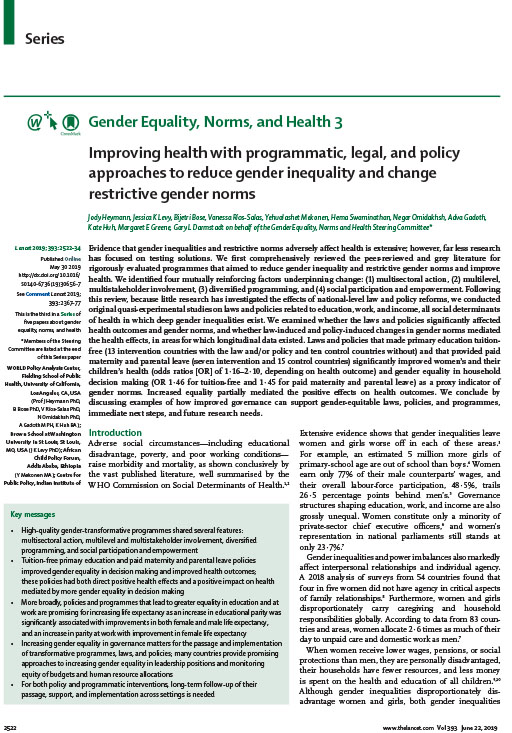
Evidence that gender inequalities and restrictive norms adversely affect health is extensive; however, far less research has focused on testing solutions. We first comprehensively reviewed the peer-reviewed and grey literature for rigorously evaluated programmes that aimed to reduce gender inequality and restrictive gender norms and improve health. We identified four mutually reinforcing factors underpinning change: […]
Gender norms and health: insights from global survey data
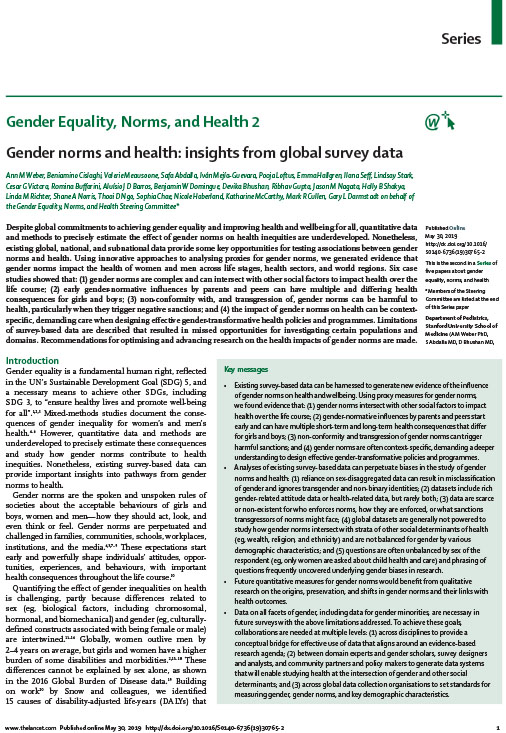
Despite global commitments to achieving gender equality and improving health and wellbeing for all, quantitative data and methods to precisely estimate the effect of gender norms on health inequities are underdeveloped. Nonetheless, existing global, national, and subnational data provide some key opportunities for testing associations between gender norms and health. Using innovative approaches to analysing […]
Gender inequality and restrictive gender norms: framing the challenges to health

Gender is not accurately captured by the traditional male and female dichotomy of sex. Instead, it is a complex social system that structures the life experience of all human beings. This paper, the first in a Series of five papers, investigates the relationships between gender inequality, restrictive gender norms, and health and wellbeing. Building upon […]
Gender equality: engaging men in change
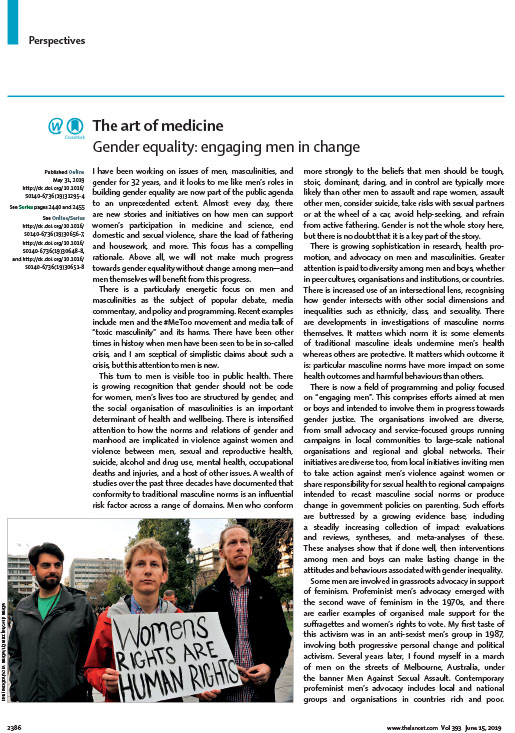
I have been working on issues of men, masculinities, and gender for 32 years, and it looks to me like men’s roles in building gender equality are now part of the public agenda to an unprecedented extent. Almost every day, there are new stories and initiatives on how men can support women’s participation in medicine […]
Gender equality and health: laying the foundations for change
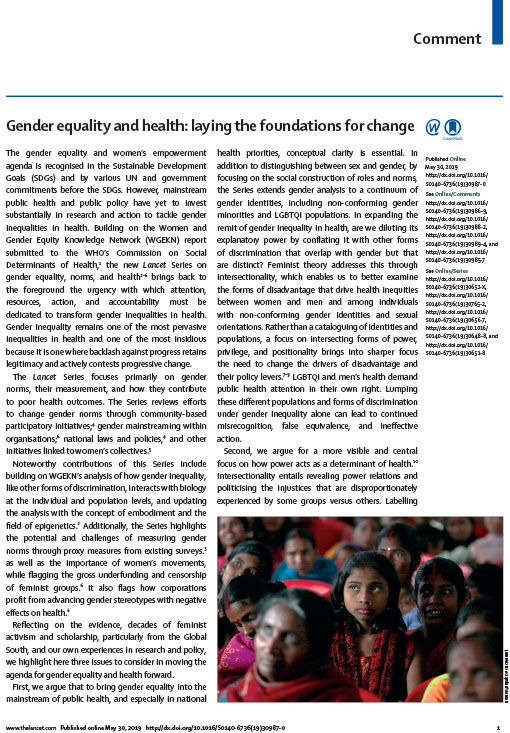
The gender equality and women’s empowerment agenda is recognised in the Sustainable Development Goals (SDGs) and by various UN and government commitments before the SDGs. However, mainstream public health and public policy have yet to invest substantially in research and action to tackle gender inequalities in health. Building on the Women and Gender Equity Knowledge […]
Gender equality and gender norms: framing the opportunities for health
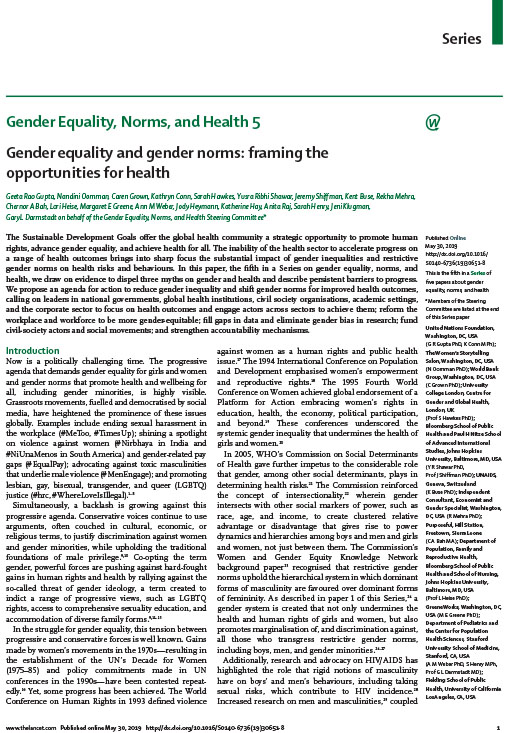
The Sustainable Development Goals offer the global health community a strategic opportunity to promote human rights, advance gender equality, and achieve health for all. The inability of the health sector to accelerate progress on a range of health outcomes brings into sharp focus the substantial impact of gender inequalities and restrictive gender norms on health […]
A new normal: addressing gender to improve health

Gender norms shape the daily lives of every person on the planet. Since the Bill & Melinda Gates Foundation is dedicated to the principle that everyone should have the opportunity to lead a healthy and productive life, we are especially interested in understanding how these norms negatively affect health. That is why we were so […]
Disrupting gender norms in health systems: making the case for change

Restrictive gender norms and gender inequalities are replicated and reinforced in health systems, contributing to gender inequalities in health. In this Series paper, we explore how to address all three through recognition and then with disruptive solutions. We used intersectional feminist theory to guide our systematic reviews, qualitative case studies based on lived experiences, and […]
Strategies for engaging men in HIV services
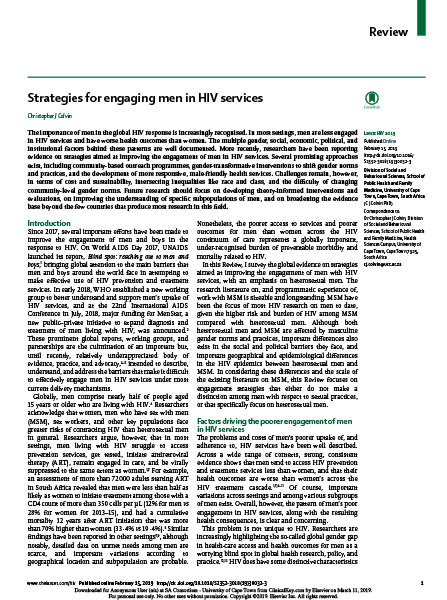
The importance of men in the global HIV response is increasingly recognised. In most settings, men are less engaged in HIV services and have worse health outcomes than women. The multiple gender, social, economic, political, and institutional factors behind these patterns are well documented. More recently, researchers have been reporting evidence on strategies aimed at […]
Cost-Effectiveness of HIV Pre-exposure Prophylaxis Among Heterosexual Men in South Africa: A Cost-Utility Modeling Analysis
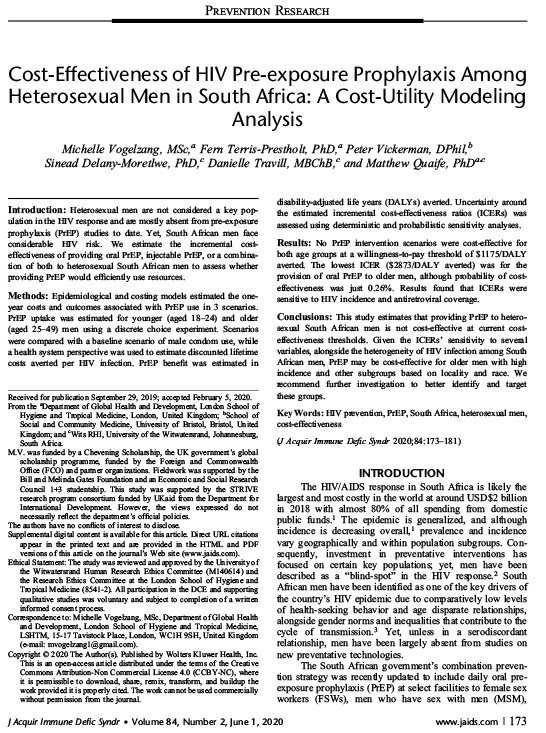
Introduction: Heterosexual men are not considered a key population in the HIV response and are mostly absent from pre-exposure prophylaxis (PrEP) studies to date. Yet, South African men face considerable HIV risk. We estimate the incremental cost-effectiveness of providing oral PrEP, injectable PrEP, or a combination of both to heterosexual South African men to assess whether providing […]


